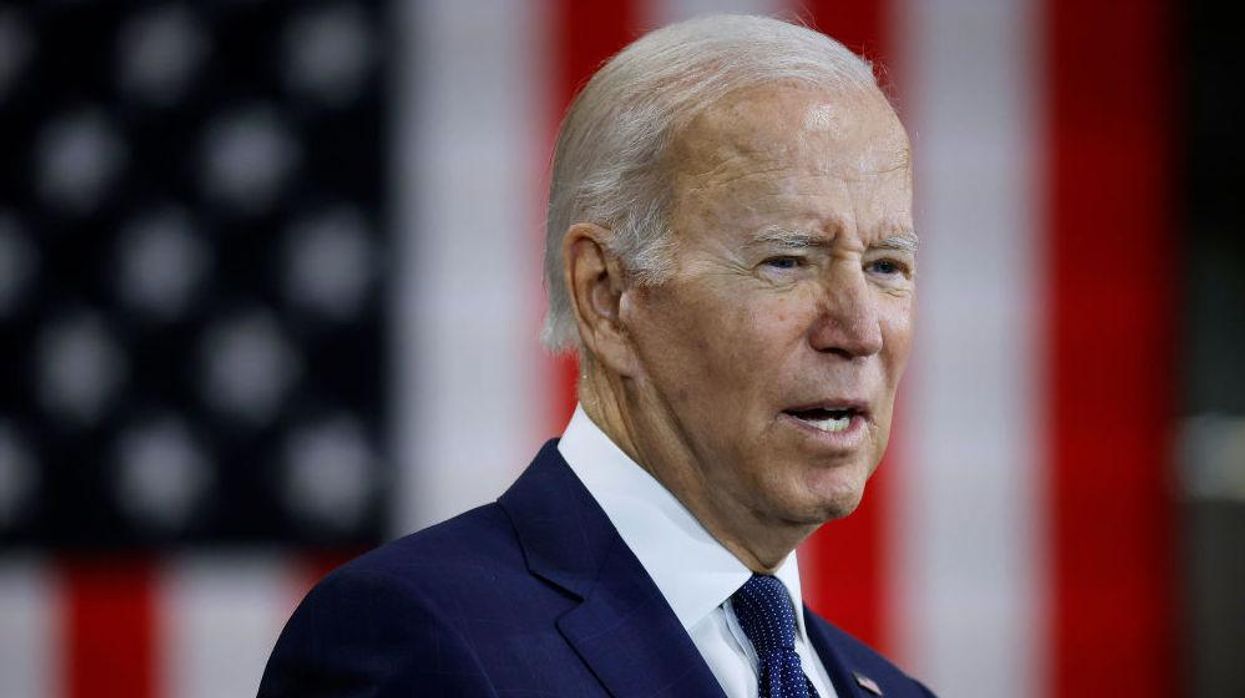
Chip Somodevilla/Getty Images

President Joe Biden threatened oil and gas companies with a "windfall tax" on Monday, accusing them of "war profiteering."
Speaking at the White House, Biden accused oil companies of netting "outrageous" profits, which he attributed to the exploitation of the war in Ukraine.
Biden said oil companies need to reinvest their profits and reduce the cost of oil — or else.
"If they don’t, they’re going to pay a higher tax on their excess profits and face other restrictions," Biden said. "It’s time for these companies to stop war profiteering, meet their responsibilities to this country, and give the American people a break and still do very well."
The U.S. is not, in fact, at war.
Moreover, Biden claimed that if oil companies were not profiteering, then Americans would be paying, on average, at least 50 cents less per gallon of gas. He did not provide evidence to back that claim.
Larry Summers, the former Treasury secretary who served in the Clinton and Obama administrations, predicted Biden's windfall tax will backfire.
"I’m not sure understand the argument for a windfall profits tax on energy companies. If you reduce profitability, you will discourage investment which is the opposite of our objective," Summers pointed out.
"If it is a fairness argument, I don’t quite follow the logic since even with the windfalls Exxon has underperformed the overall market over the last 5 years," he noted.
\u201cIf it is a fairness argument, I don\u2019t quite follow the logic since even with the windfalls Exxon has underperformed the overall market over the last 5 years.\u201d— Lawrence H. Summers (@Lawrence H. Summers) 1667297192
As Summers observed, the oil business is highly volatile.
For instance, while Biden emphasizes the industry's current profits, the five biggest oil companies — ExxonMobil, BP, Shell, Chevron, and TotalEnergies – lost $76 billion in 2020. Biden, however, made no mention of that.
Meanwhile, the American Petroleum Institute also pointed out in a response to Biden that the oil industry does not control the price at the pump.
"Oil companies do not set prices—global commodities markets do," API president and CEO Mike Sommers said.
Economists at the Federal Reserve of Dallas have explained why oil companies are not responsible for the high prices of gas at the pump. According to their calculations, less than 60% of the price of gas is directly related to the price of oil. Other costs associated with the price of gas include oil refining, distribution, and taxes.
The truth is that gas stations control the price of gas at the pump.
"Since only 1% of service stations in the U.S. are owned by companies that also produce oil, U.S. oil producers are in no position to control retail gasoline prices," the Dallas Fed explained.